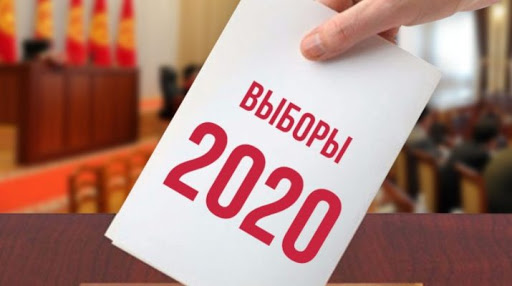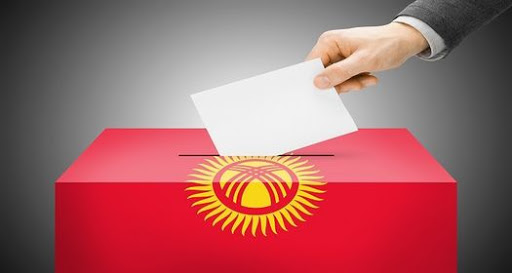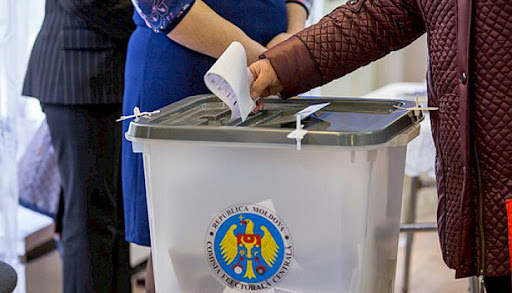
Kyrgyzstan to hold multiparty parliamentary elections on October 4 amid pandemic

By Nurzhan Kasmalieva
Reporter, Kyrgyzstan
BISHKEK: Sixteen political parties will run in the parliamentary elections in Kyrgyzstan slated for October 4.
The Kyrgyz parliament has 120 seats with members elected for a five-year term by party-list proportional voting.
According to Kyrgyz legislation, to win seats, parties must pass a national electoral threshold of 7%, and receive at least 0.7% of the vote in each of the seven regions of the country.
No one party is allowed to hold more than 65 seats. Party lists are required to have at least 30% of the candidates from each gender, and every fourth candidate had to be of a different gender.
Each list is also required to have at least 15% of the candidates being from ethnic minorities and 15% of under 35 years old, as well as at least two candidates with disabilities.
Several opposition parties had called on the government to postpone the elections due to the COVID-19 pandemic raging around the world. However, head of the Central Election Commission (CEC) of Kyrgyzstan Nurzhan Shaildabekova explained that elections are not held only if a state of emergency or martial law is introduced.
She said that the entire world is already adapting, and that the epidemiological situation may continue and there may be a second and third waves of the pandemic.
The CEC of Kyrgyzstan has been preparing for the major and important event in the country.
The election campaign began in the country on September 4 and currently, all the parties are engaged in an active pre-election campaign.
In the beginning, more than 40 parties announced their intentions to participate in the elections. However, more than half of them were unable to fulfill all the necessary requirements set by the CEC for registration.
This year, the Kyrgyz authorities urged the participating parties to work online as much as possible through the media and social media due to the pandemic. The authorities also banned omass events – concerts, sports events and other activities during the campaign.
Gatherings are allowed for no more than 100 people in compliance with all sanitary norms.
Meanwhile, the Central Election Commission of Kyrgyzstan is taking all measures for the organization and holding of safe elections in terms of sanitary and epidemiological norms and developed an algorithm for campaigning and voting. A novelty of the elections is the restriction of gathering of people during the pre-election period and on Election Day.
CEC promises that all their staff, observers and journalists who cover the elections will be provided with protective gear.

On Election Day, the voters will undergo temperature checks and the polling stations will undergo periodically disinfection processes.
Deputy Chairman of the Central Election Commission of Kyrgyzstan Abdyzhapar Bekmatov told Kabar News Agency that in preparing for the elections, the CEC held consultations with colleagues from other countries where elections were held during the pandemic.
Kyrgyzstan is not the only country to hold the elections during the pandemic. Elections had been held in South Korea, Poland, and Russia. In addition, elections were held in Syria where martial law was introduced. Other countries, including the USA, Georgia and Ukraine, plan to hold elections in spite of the pandemic.
Kyrgyzstan’s Prime Minister Kubatbek Boronov recently noted that the upcoming parliamentary elections are notable for the fact that they will be held during the coronavirus pandemic.
“A major political event requires high organization, including ensuring epidemiological security at the polling stations during the voting process and preventing citizens from becoming infected. We face the task of ensuring all conditions for holding open and fair elections,” he said.
President Sooronbay Jeenbekov in his regular online meetings with Prime Minister Boronov has every time stressed the necessity to ensure proper technical and sanitary readiness of polling stations and to strengthen control over compliance with electoral legislation.
Representatives of international organizations have arrived in Kyrgyzstan to monitor and observe the elections.
The OSCE/ODIHR mission has deployed 24 long-term observers. The originally planned 350 short-term observers could not arrive in Kyrgyzstan due to travel restrictions imposed by the pandemic.

In addition, the mission of observers from the Commonwealth of Independent States will monitor the parliamentary elections.
The Central Election Commission also accredited representatives of diplomatic organizations – the Japanese and German ambassadors to the Kyrgyz Republic, as well as their deputies, state secretaries of embassies, heads of departments – as international observers.
Around 210 media organizations have been accredited to cover the quinquennial event in the Central Asian country.


